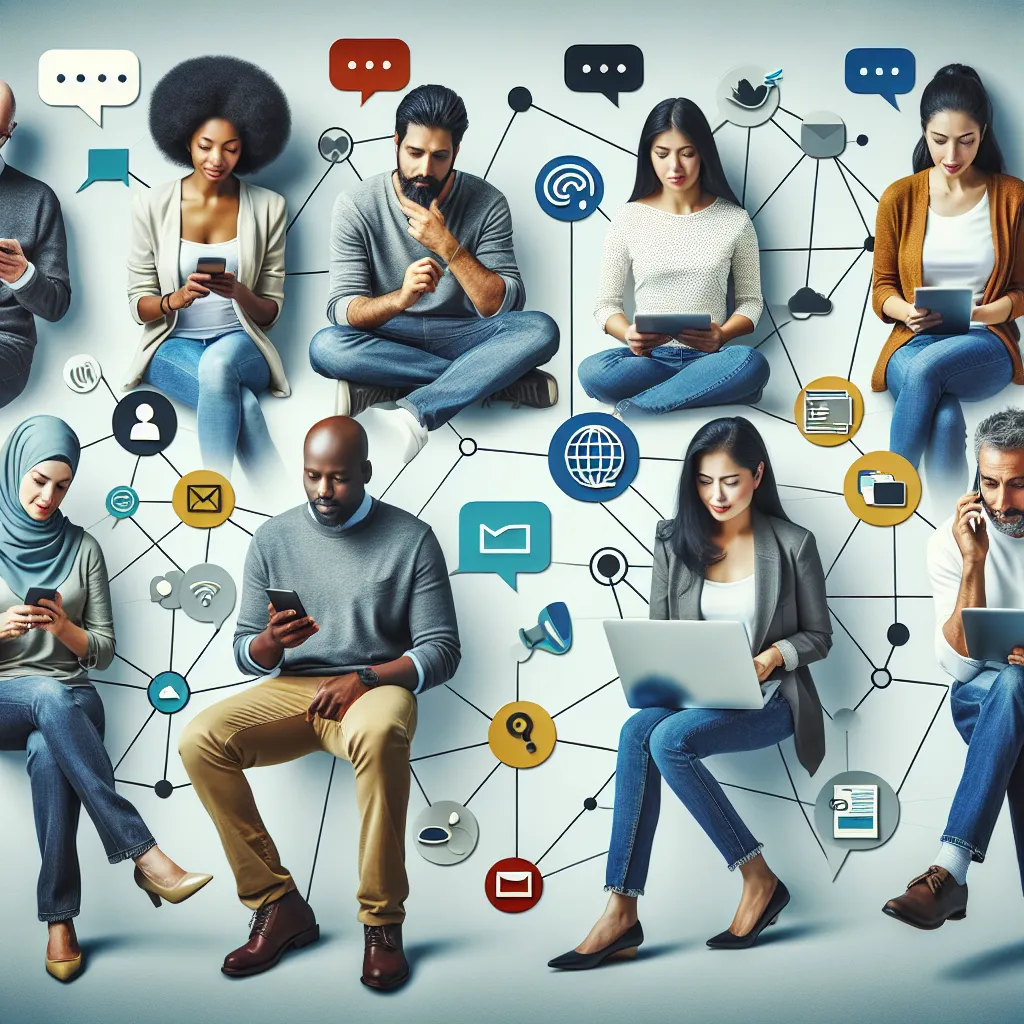In today’s globalized world, cross-cultural collaboration has become increasingly common. This makes “Describe a time when you had to collaborate with someone from a different culture” a highly relevant topic for the IELTS Speaking test. This article will guide you through answering this question effectively, providing sample answers and valuable tips to help you achieve a high band score.
Nội dung bài viết
- Understanding the Topic
- Part 1: Introduction and Interview
- Question: Do you enjoy working with people from different cultures?
- Question: What challenges might arise when working with someone from a different culture?
- Part 2: Long Turn
- Follow-up Questions:
- Part 3: Two-way Discussion
- Question: How do you think globalization has affected workplace diversity?
- Question: What skills do you think are essential for effective cross-cultural communication?
- Key Vocabulary and Phrases for High Scores
- Examiner’s Advice
Understanding the Topic
This topic assesses your ability to discuss intercultural experiences, communication skills, and adaptability. It’s a popular choice among IELTS examiners as it reflects real-world scenarios many students and professionals encounter. Being well-prepared for this question can significantly boost your performance in the Speaking test.
 Cross-cultural collaboration
Cross-cultural collaboration
Part 1: Introduction and Interview
In Part 1, the examiner may ask general questions about cultural diversity and collaboration. Here are some possible questions with sample answers:
Question: Do you enjoy working with people from different cultures?
Band 6-7 Answer:
Yes, I do. It’s interesting to learn about different perspectives and ways of doing things. I’ve had some good experiences working with people from other cultures in my university projects.
Band 8-9 Answer:
Absolutely! I find collaborating with people from diverse cultural backgrounds incredibly enriching. It not only broadens my perspective but also enhances my interpersonal skills. I’ve had numerous opportunities to work with international students on academic projects, and each experience has been uniquely rewarding.
Question: What challenges might arise when working with someone from a different culture?
Band 6-7 Answer:
There can be language barriers and different ways of communicating. Sometimes, people have different work styles or expectations, which can lead to misunderstandings.
Band 8-9 Answer:
Several challenges can emerge in cross-cultural collaborations. Miscommunication due to language differences or contrasting communication styles is a common issue. Additionally, varying work ethics, differing concepts of time management, and divergent decision-making processes can lead to friction. However, I believe these challenges, when addressed properly, can become opportunities for personal growth and cultural enrichment.
Part 2: Long Turn
Here’s a sample cue card for this topic:
Describe a time when you had to collaborate with someone from a different culture.
You should say:
- Who this person was
- What you were collaborating on
- What cultural differences you noticed
- How you overcame any challenges
And explain what you learned from this experience.
Band 6-7 Answer:
I’d like to talk about a time when I worked with a Japanese exchange student named Yuki on a group project for our International Business class. We had to create a presentation about global marketing strategies.
One of the main cultural differences I noticed was in our communication styles. Yuki was more indirect and polite in her speech, while I was more direct. This sometimes led to misunderstandings about task assignments and deadlines.
To overcome these challenges, we had regular meetings where we clarified our expectations and tried to understand each other’s perspectives. We also used written communication to ensure everything was clear.
From this experience, I learned the importance of patience and clear communication when working with people from different cultures. It also made me more aware of my own cultural biases and the need to be more flexible in my approach to teamwork.
Band 8-9 Answer:
I’d like to recount a particularly enlightening experience I had collaborating with Yuki, a Japanese exchange student, on a comprehensive group project for our International Business course. Our task was to develop and present an in-depth analysis of global marketing strategies, focusing on the interplay between Eastern and Western markets.
The cultural nuances I observed were fascinating. Yuki’s communication style was notably more indirect and nuanced compared to my more straightforward approach. This disparity occasionally led to misinterpretations, particularly regarding task allocation and project timelines. Moreover, I noticed that Yuki placed a strong emphasis on group consensus before making decisions, which contrasted with my tendency to take initiative independently.
To bridge these cultural gaps, we implemented several strategies. We scheduled regular face-to-face meetings to foster open dialogue and clarify any ambiguities. Additionally, we utilized a shared digital platform for project management, which helped in maintaining clear, written communication and tracking progress transparently.
This collaboration was immensely educational. It heightened my cultural sensitivity and made me acutely aware of my own inherent biases. I learned the invaluable skill of adapting my communication style to be more effective in cross-cultural settings. Furthermore, it underscored the importance of patience, active listening, and flexibility in international collaborations. This experience not only enhanced our project outcome but also significantly broadened my global perspective, preparing me for future intercultural engagements in the business world.
Follow-up Questions:
- How did this experience change your approach to teamwork?
Band 6-7 Answer:
This experience made me more aware of different working styles. Now, I try to be more patient and flexible when working in teams, especially with people from different backgrounds.
Band 8-9 Answer:
This experience profoundly transformed my approach to teamwork. I’ve become significantly more attuned to diverse working styles and cultural nuances. Now, I proactively seek to understand my team members’ cultural backgrounds and adapt my communication accordingly. I’ve also developed a heightened appreciation for the value of diverse perspectives in problem-solving and innovation.
- What advice would you give to someone working in a multicultural team for the first time?
Band 6-7 Answer:
I would advise them to be open-minded and patient. It’s important to listen carefully and ask questions if you’re not sure about something. Also, try to learn about your team members’ cultures to understand them better.
Band 8-9 Answer:
For someone venturing into a multicultural team for the first time, I would offer several pieces of advice. Firstly, cultivate cultural intelligence by researching and understanding the cultural backgrounds of your team members. Secondly, practice active listening and be patient in your communications, as meanings can often be lost in translation. It’s crucial to create an atmosphere of psychological safety where team members feel comfortable expressing their ideas and concerns. Additionally, embrace the diversity within your team as a strength, recognizing that different perspectives can lead to more innovative solutions. Lastly, be flexible and willing to adapt your working style to accommodate cultural differences, viewing this as an opportunity for personal and professional growth.
Part 3: Two-way Discussion
Question: How do you think globalization has affected workplace diversity?
Band 6-7 Answer:
Globalization has definitely increased workplace diversity. Many companies now have employees from different countries and cultures. This can bring new ideas and perspectives to the workplace, but it can also lead to some challenges in communication and understanding.
Band 8-9 Answer:
Globalization has profoundly transformed workplace diversity, creating a rich tapestry of cultures within organizations worldwide. This shift has catalyzed innovation by bringing together diverse perspectives and problem-solving approaches. However, it has also presented unique challenges, such as navigating cultural sensitivities and overcoming language barriers. Companies are now prioritizing cultural competence in their workforce, recognizing it as a crucial skill for success in the global marketplace. This diversity not only enhances creativity and adaptability but also broadens market understanding, allowing businesses to better serve a global clientele. Nevertheless, it requires organizations to foster inclusive environments and implement robust cross-cultural training programs to fully harness the benefits of a diverse workforce.
Question: What skills do you think are essential for effective cross-cultural communication?
Band 6-7 Answer:
I think some important skills for cross-cultural communication are patience, open-mindedness, and good listening skills. It’s also helpful to have some knowledge of different cultures and to be willing to learn from others. Being able to adapt your communication style is crucial too.
Band 8-9 Answer:
Effective cross-cultural communication requires a multifaceted skill set. Cultural intelligence is paramount, encompassing the ability to recognize, respect, and adapt to cultural nuances. Emotional intelligence is equally crucial, as it enables individuals to navigate complex interpersonal dynamics with empathy and sensitivity. Active listening skills are essential for understanding not just the words, but also the context and underlying meanings in cross-cultural dialogues. Linguistic adaptability, including the ability to simplify language and avoid colloquialisms, is vital when communicating with non-native speakers. Moreover, non-verbal communication awareness is critical, as gestures and body language can vary significantly across cultures. Lastly, conflict resolution skills tailored to different cultural contexts are indispensable for maintaining harmonious international relationships. Developing these skills requires continuous learning and self-reflection, but they are invaluable in our increasingly interconnected world.
Key Vocabulary and Phrases for High Scores
To elevate your IELTS Speaking performance, incorporate these sophisticated terms and phrases:
-
Cultural intelligence (noun) /ˈkʌltʃərəl ɪnˈtelɪdʒəns/: The ability to relate and work effectively across cultures.
Example: “Developing cultural intelligence is crucial for success in international business.” -
Cross-cultural competence (noun) /krɒs ˈkʌltʃərəl ˈkɒmpɪtəns/: The ability to understand, communicate with, and effectively interact with people across cultures.
Example: “The company prioritizes cross-cultural competence in its hiring process.” -
To bridge the cultural gap (phrase) /tə brɪdʒ ðə ˈkʌltʃərəl gæp/: To overcome cultural differences and improve understanding between different groups.
Example: “Regular team-building activities helped us bridge the cultural gap in our diverse workforce.” -
Intercultural sensitivity (noun) /ˌɪntəˈkʌltʃərəl ˌsensɪˈtɪvɪti/: Awareness and understanding of cultural differences and similarities.
Example: “Through this collaboration, I developed greater intercultural sensitivity.” -
To navigate cultural nuances (phrase) /tə ˈnævɪgeɪt ˈkʌltʃərəl ˈnjuːɑːnsɪz/: To successfully understand and deal with subtle cultural differences.
Example: “Experienced diplomats are skilled at navigating cultural nuances in international negotiations.”
Examiner’s Advice
To excel in the IELTS Speaking test, particularly on topics like cross-cultural collaboration:
- Practice discussing your experiences with cultural diversity regularly.
- Develop a repertoire of sophisticated vocabulary related to cultural topics.
- Be prepared to provide specific examples and anecdotes to support your points.
- Work on expressing complex ideas clearly and coherently.
- Stay informed about global cultural issues to discuss them confidently.
Remember, the key to a high score is not just in what you say, but how articulate, fluent, and confident you are in expressing your ideas.
For more tips on improving your IELTS Speaking performance, check out our guide on how to describe a time you were involved in a creative project. Additionally, to enhance your overall communication skills, which are crucial for cross-cultural collaboration, read our article on the impact of technology on communication skills.
By mastering these strategies and continuously practicing, you’ll be well-prepared to tackle any question about cross-cultural collaboration in your IELTS Speaking test.


